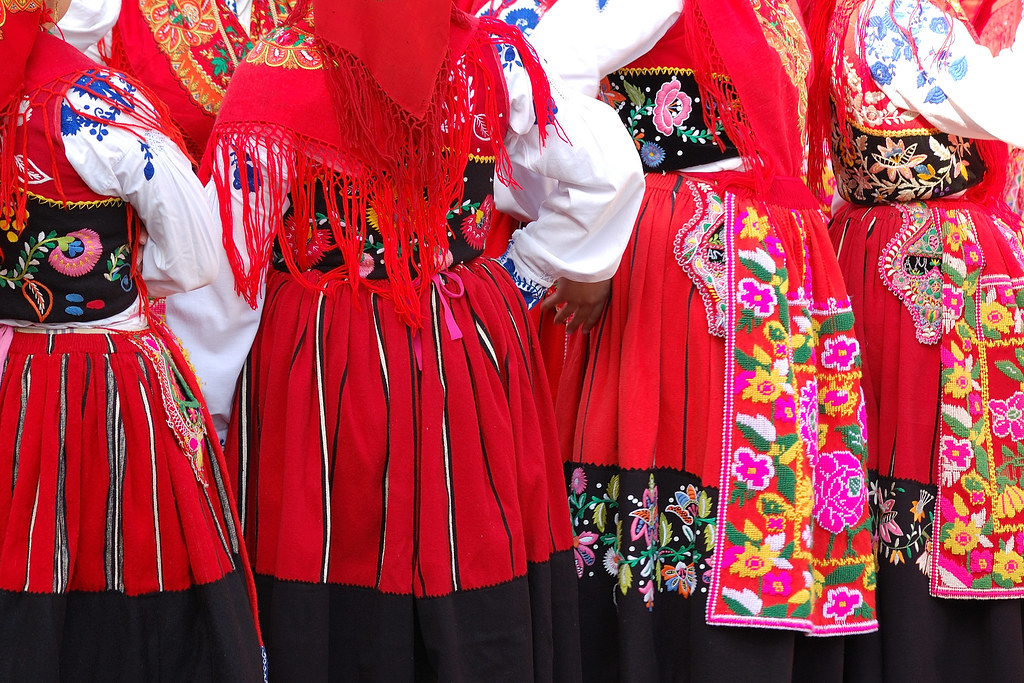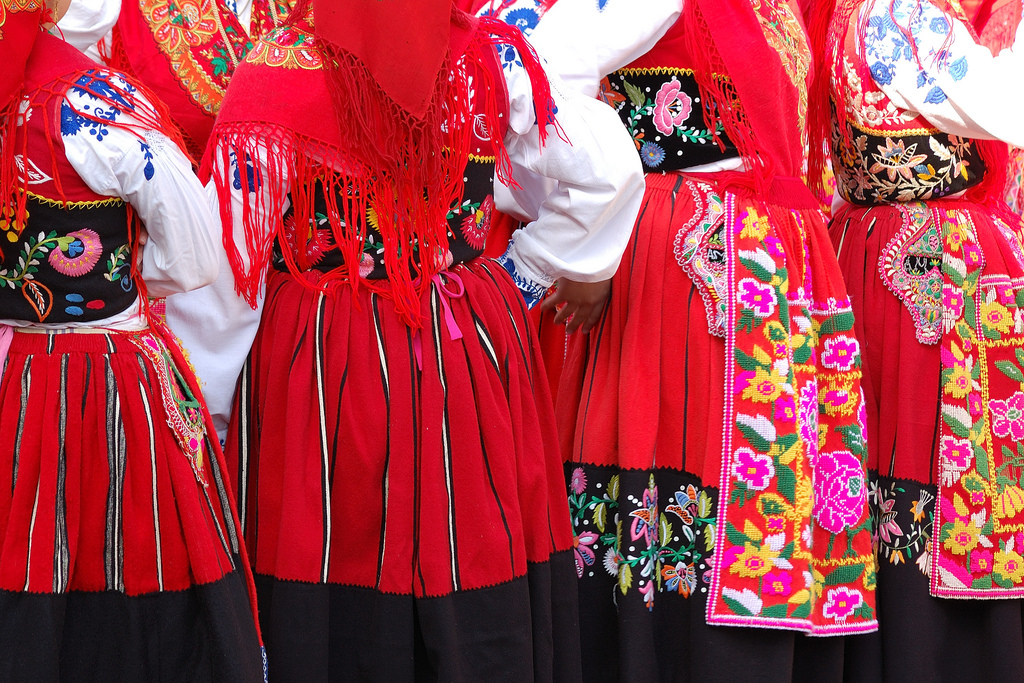Since ancient times, convenient geographical position, favorable climate and fertile lands of Portugal were attracting the conquerors. Portuguese culture was formed under the influence of different peoples: Arabs, Romans, Germanic tribes, Moors, Spaniards. The language of Portugal was developed from Arabic concepts and common Latin. Most of the Portuguese cities are very ancient, and the same could be said about the buildings. The two rivers in Portugal flow through the country, as if they are two wide arteries. The one – the Douro, which fertile valleys have glorified the Portuguese Port to the whole world, and the other- the Tagus, a broad and calm river with flooded meadows on its banks, where the magnificent horses and bulls graze. The regions of Portugal are very different from each other. The most traditional are the Northern provinces, such as Tras-os-Montes and Minho. The southern part of the country is completely different from the northern, having magnificent sandy beaches of the Algarve and the warm Mediterranean climate. Here, it is possible to stay in Faro, rent a car at Faro Airport and comfortably discover the culture and traditions of Portugal.
Portugal is a colorful country, and each region has its own historical national costume, which is usually worn for the holidays. The women are wearing bright apron, checkered or striped skirt and long-sleeved white blouse.

Male national costume consists of short trousers, leg warmers, wide belt, shirt and a vest.
The Portuguese are having great respect for the Catholic faith. Very often, the image of saints or crucifixes could be found on the facades of houses and cafes. In Portugal, even the majority of holidays, celebrated in the country, are of a religious nature: Pilgrimage to Fatima, Good Friday, Corpus Christi, St. Anthony’s Day and others. Holidays are accompanied by music, fireworks, dances, specific rituals.
The family, for the Portuguese, is the basis of life. Until recently, there were families with up to eight children. Several generations could live under one roof. Currently, the average family usually has one or two children, but in Portugal, the concept of a family is not only the parents and the child, but also the rest of the relatives. Here people like to arrange grand dinners, gathering all members of the family. The people of the older generation still have a strong traditional way of life: the man is the head of the family, and the woman is the wife, mother and keeper of the hearth and home. In modern Portugal, older children try to live separately from their parents, especially since the country has a very developed mortgage. Banks give loans to buy an apartment for up to 50 years’ time, at a very low interest. The women condition has also changed, they are having their own business and hold high positions in the government.
The modern Portuguese are having swarthy skin and shiny eyes. They are emotional, temperate, like to communicate (loud enough), supplementing their speech with gestures. There is also a slowness in the Portuguese character, they may be late for business meetings, treat this with understanding, as it is just a national feature. However, the mealtime for the Portuguese is sacred, and if you are invited to dinner, it is best not to be late. Starting at 13.00, the cafes, bars, restaurants are filled with visitors. If you visit some non-tourist place at this time, you would see that lunch for the Portuguese is a true ritual. Slowly sipping a glass of chilled white wine, they are discussing the latest news, not hesitating to express their opinion and to argue. Lunch, like any other meal, ends with coffee. The Portuguese like it very much, and even when coming to work, first of all they are drinking coffee.
Another passion of the Portuguese is football. Not only the men, but also the women are zealous fans.

Women know all the chants and can sing the hymn of their favorite team. When football matches are held, life in the country is suspended and concentrated in front of the TVs. If the Portuguese team wins, you would know about it- happy shouts and machine horns would be heard on the streets for a long time.
At the same time, the Portuguese are very responsive and polite. In stores, they usually welcome every visitor, and visitors reciprocate, the silence could be a sign of mauvais ton. If you do not know Portuguese, just answer ‘Hello’, and then it becomes clear that you are a tourist and, most likely, people would continue to communicate with you in English. Portuguese people are sympathetic and good-natured. Many are fluent in English, and will be happy to help if you ask them. Perhaps, they would even advise some interesting places, where, for example, the most delicious snails are cooked. Despite the typical saudade state (the feeling of nostalgia, light sadness and frailty), and the traditional melancholic fado, which is heard everywhere, they know how to relax.

Portuguese people like ‘festas’ (holidays). Here, the holidays are almost all year round, but with no long vacation. The celebrations are organized with the grand scope of the Portuguese soul. The most popular months for various festivals and fairs are July and August. The main holiday of spring in Portugal, of course, is Easter, but, in addition to this religious festival, there are many other bright events in the spring. For example, the annual international chocolate festival, the festival of flowers in Madeira and many music festivals. Here people appreciate their traditions much, but such adherence does not stop them from having fun at the annual rock festivals, biker gatherings, carnivals and bullfighting. Fairs in August and September are held throughout the country and are dedicated to harvesting. At the festival of wine, you can even mash the grapes, as did Adriano Celentano in the movie “The Taming of the Shrew.” The festival of young wine, international rallies, film festivals, photo exhibitions are also held.

